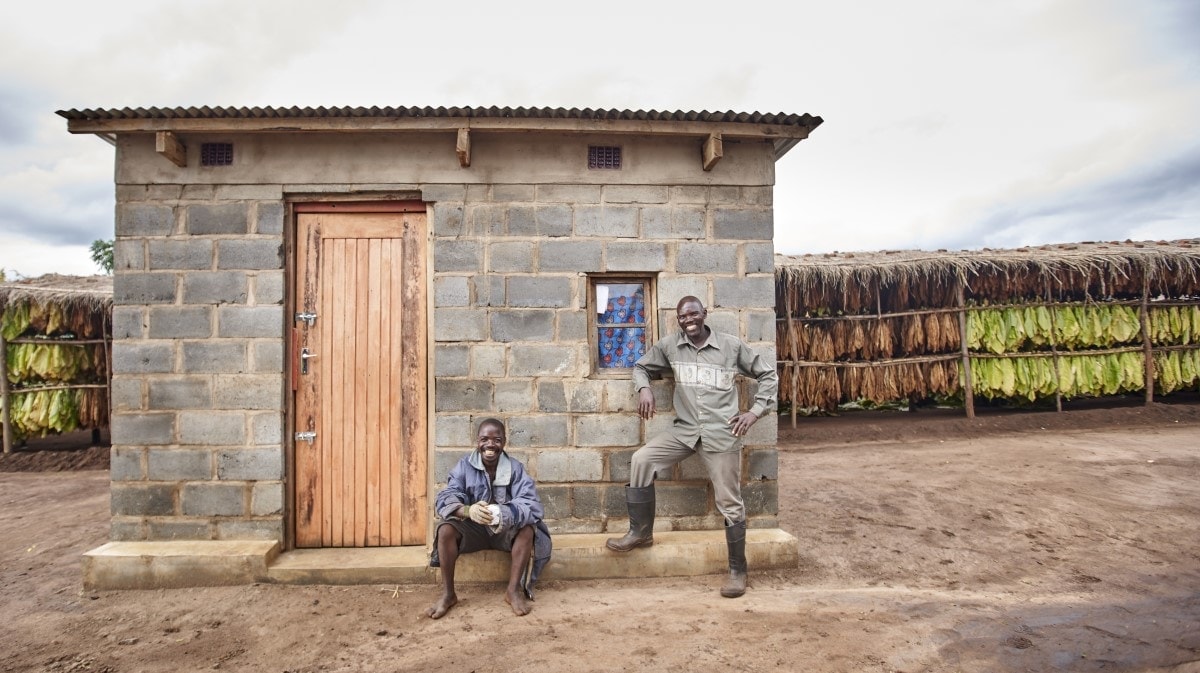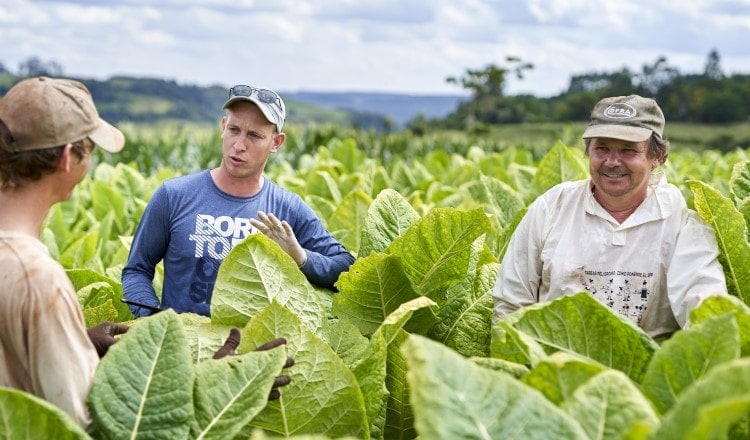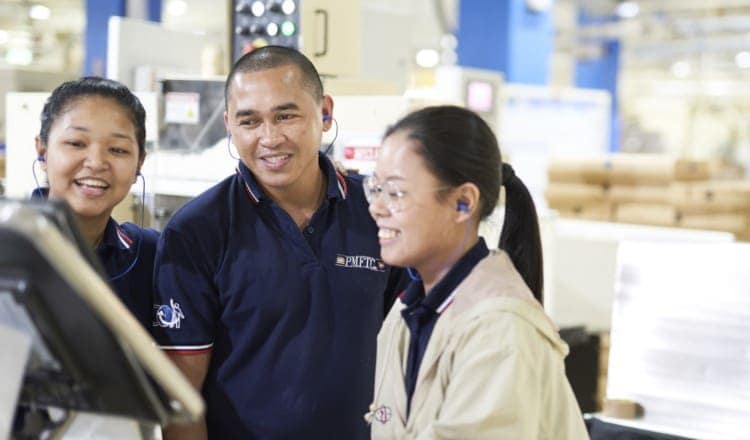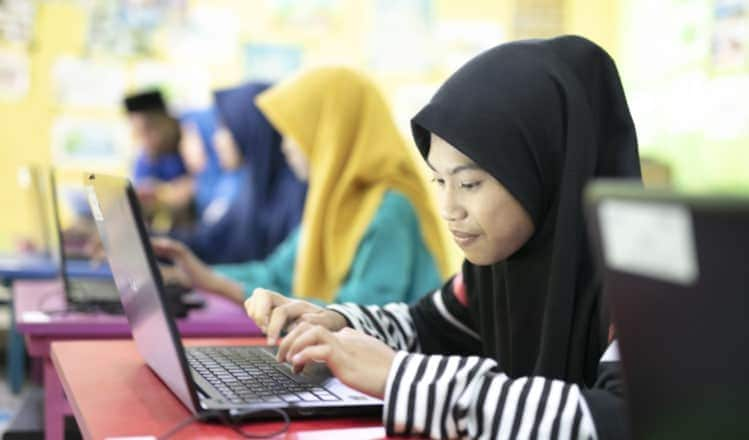| INTEGRATED REPORT 2019 |
Progress in 2019
Contributing to alleviating poverty
PMI is committed to improving the livelihoods of the contracted farmers supplying tobacco to the company, and consequently the communities in which they live, not only because it is the right thing to do, but also because we see this as a fundamental enabler to address social issues in our supply chain and achieve greater sustainability.
To improve livelihoods in tobacco communities, it is vital to identify potential gaps between the actual income of a household and the regional living income benchmark, which is the net annual income required for a household in a particular place to afford a decent standard of living for all members of that household. Where an income gap is identified, we look at initiatives to improve the efficiency and productivity of tobacco production and opportunities to implement complementary crops or other income-generating activities to close the gap.
At PMI, we have designed a number of initiatives to support contracted farmers in improving their income levels and thus the livelihoods of their households. The initiatives offer a clear route to resolving labor abuses, particularly child labor, and include farming efficiency programs, improved mechanization and irrigation, crop diversification, and alternative business models. In 2019, we brought together these initiatives under a “Living Income Program,” which aims to assess actual farmer income versus the living income benchmark of a given area. Our partner Verité has been assisting us to identify suitable partners to conduct assessments. In this initial stage, we are conducting the work in Pakistan, and are planning to expand to Malawi in 2020.
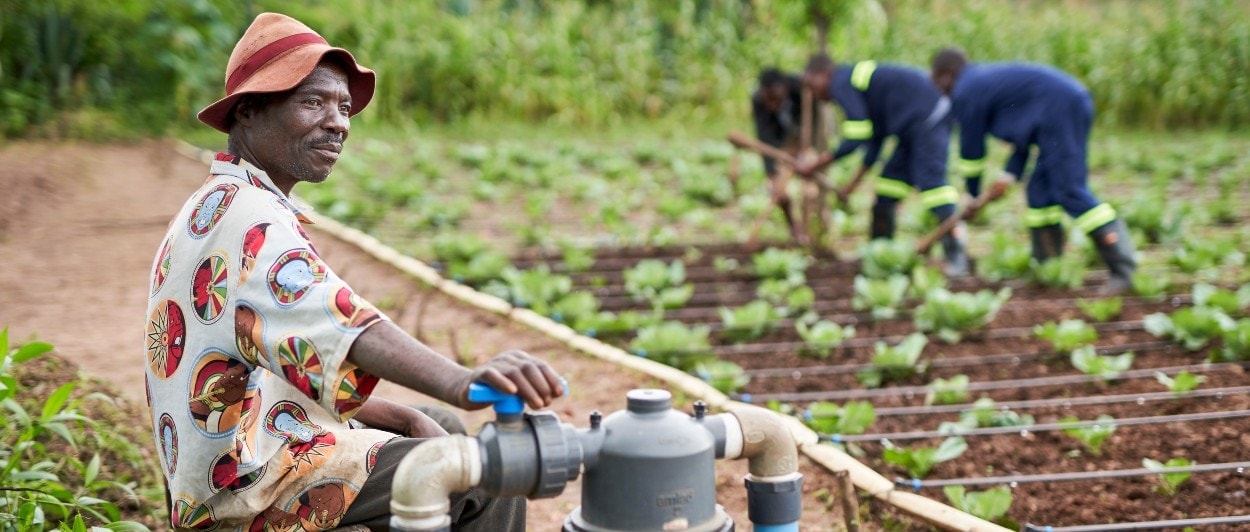
Farm efficiency
To improve household income, many farmers routinely seek out efficiencies and savings in their operations throughout the year. PMI supports these efforts. Examples include farmers hiring only the labor required, more careful use of inputs such as fertilizer, and finding ways to increase yields per hectare. Additionally, introducing effective irrigation methods, such as drip systems, can save not only water, but also time and labor costs, while increasing the yield and quality of tobacco (and other complementary crops) produced. Another farm efficiency relates to crop storage, which can be improved to reduce the potential financial loss from crops spoiling and the need for insecticides after harvest. Going further, our programs support mechanization of field preparation, which can provide labor savings and elevate yields.
Diversification
Our smoke-free products require less tobacco than cigarettes, and so we foresee a gradual decrease in our tobacco leaf requirements from some countries. Consequently, supporting farmers in diversifying their crops has become an even more important focus area for PMI. Growing and marketing a range of complementary crops can improve farm income. By diversifying their crops and engaging in other income-generating activities, farmers are more resilient against climate change and economic uncertainty.
We have designed a number of initiatives to support contracted farmers in improving their income levels.
We see it as our duty to help farmers and their families improve their livelihoods and are seeking ways to improve farmer income to a level that meets the relevant living income benchmarks in our sourcing countries. In certain countries, irrigation can play a significant role in diversification, allowing farmers to grow crops during the dry season. In Mozambique, for instance, the low-cost treadle pump irrigation trials we began in 2018 provided interim results in 2019 that show that smallholder farmers are able to produce and market their crops during the dry period and achieve additional income.
Meanwhile, in Pakistan, we have rolled out our corn support program to 359 farmers, with the aim of increasing farmer profitability, food security, and livestock feed. This program supplements a similar project we established with 75 farmers to grow mushrooms. In 2019, we also developed and expanded a more formalized production of home allotment gardens with seven vegetable crops, which were mainly consumed by farmers’ families and hired workers. This program reached a total of 1,700 farmers.
We have also supported the introduction of alternative crops beyond the low-to-middle-income countries from which most PMI tobacco is sourced. In Italy and Spain, for instance, PMI has helped to establish fairly extensive cultivation trials, around 40 hectares, of alternative crops such as hazelnuts, cardoons, broccoli, potatoes, and tomatoes.
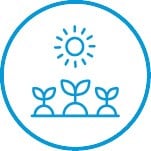
Supporting farmers in diversifying their crops is an important focus area for PMI
PMI’s Living Income Program at work: improving livelihoods in Malawi
PMI has identified Malawi as a priority country for supporting farm diversification. Existing projects, run in partnership with USAID’s Feed the Future program, focus on trialing new varieties of crops and improving how soybean and groundnuts are cultivated. We also work with our local third-party tobacco suppliers to trial an array of different irrigation systems, which could provide farmers who have historically relied on a single rain-fed crop with the opportunity to produce crops in a year. In 2019, production of groundnuts was increased to 3,300 hectares, with many contracted farmers establishing formal contractual arrangements with our leaf suppliers to ensure their product is sold.
Another diversification effort is beekeeping – a project started in 2018 and expanded in 2019 to supplement farm income through the production and sale of honey. We have supported our suppliers in setting up and running 640 hives on their own farms, as well as on smallholder farms in central Malawi. Specialist advice and training are provided to ensure consistently high-quality honey. The project will expand to include hundreds more hives over the next few years, and field technicians will collect monitoring data along the way to track impact. The project is an excellent example of a connection between a natural capital stock and socio-economic value. As honey production increases, it will be processed and commercialized in local and export markets.
Water and mechanization are also key. A study under way aims to identify sustainable sources of water that can be used for irrigation in central Malawi. And on mechanization, PMI is running a pilot whereby Malawian entrepreneurs provide field preparation services to farmers, using tractors. While the pilot is at an early stage, with 1,500 hectares serviced to date, we have started to measure the impact on smallholder agricultural productivity, financial feasibility, and the benefits derived from using a digital platform to monitor tractor efficiency and schedule services.
The Living Income Program also tracks progress. Along with the practical projects, we piloted a Household Welfare Survey in 2019 to analyze 2,150 farmer households and assess the impact of the ongoing agricultural initiatives. The survey assesses other non-tobacco sources of income, the poverty index, and food security and nutritional diversity. We expect to share the results of the survey in future reports.
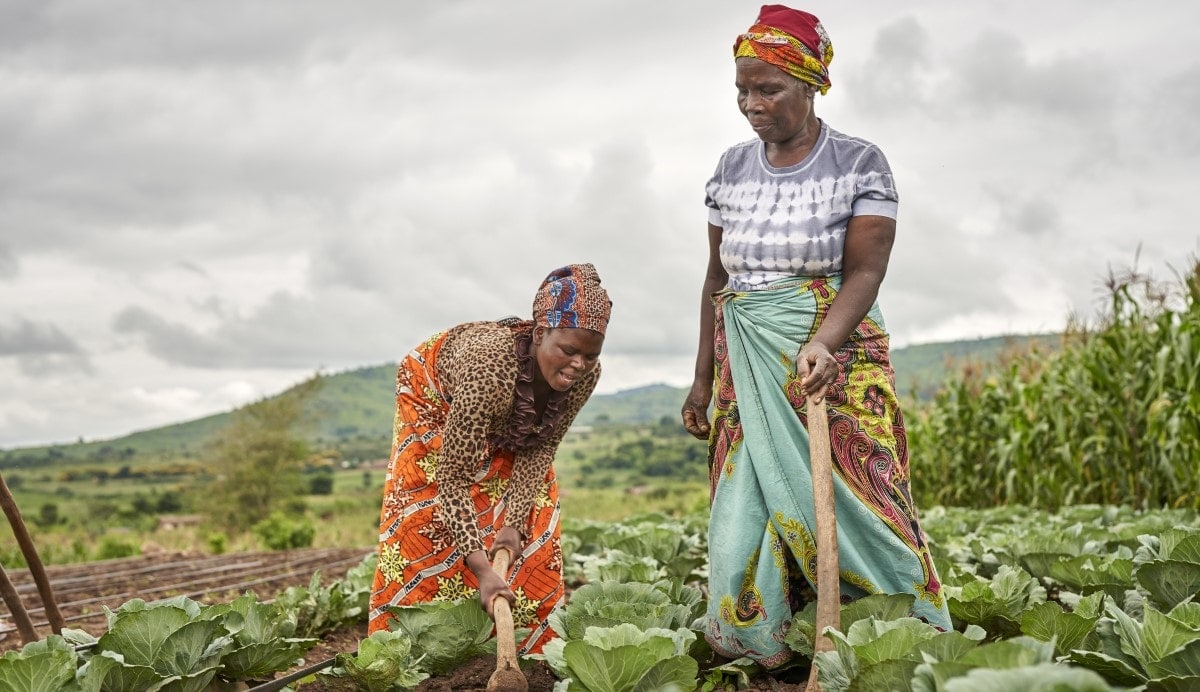
Agricultural Labor Practices
In 2019, field technicians contracted by PMI and by our leaf suppliers monitored 92 percent of all contracted farms (an increase from 88 percent in 2018), and we are committed to continually strengthen our monitoring to improve our visibility of issues – taking a more risk-based approach, and to also be more effective in addressing identified issues. In 2019, for instance, we also piloted our overall ALP program in China, covering close to 23,000 farms.
Across the countries we source tobacco from, the most recurrent and difficult problems include:
work performed by children;
inadequate and unsafe accommodation for farmworkers;
payment to workers below the minimum legal wage or formalized agricultural benchmark; and
inadequate access to PPE that can prevent harm from exposure to CPA and GTS.
We have developed and are implementing action plans to address these recurrent issues in collaboration with key stakeholders, including our strategic partner Verité, local NGOs, and governments. We have also commissioned external verification in some priority countries.
In 2019, we refined our due diligence, monitoring, follow-up, and consequence management by introducing specific guidelines. For instance, we want to reward farmers who make an effort to align with our standards and will stop doing business with those who repeatedly do not or are unwilling to change despite the support they receive from us. We clearly communicate expectations and potential sanctions at the beginning of the season, ensuring consequences are applied transparently and consistently across all contracted farmers. This systematic approach resulted in a significant increase in contract terminations due to ALP violations in 2019, with 641 contracts terminated.
Total prompt actions recorded by field technicians (2017 -2019)
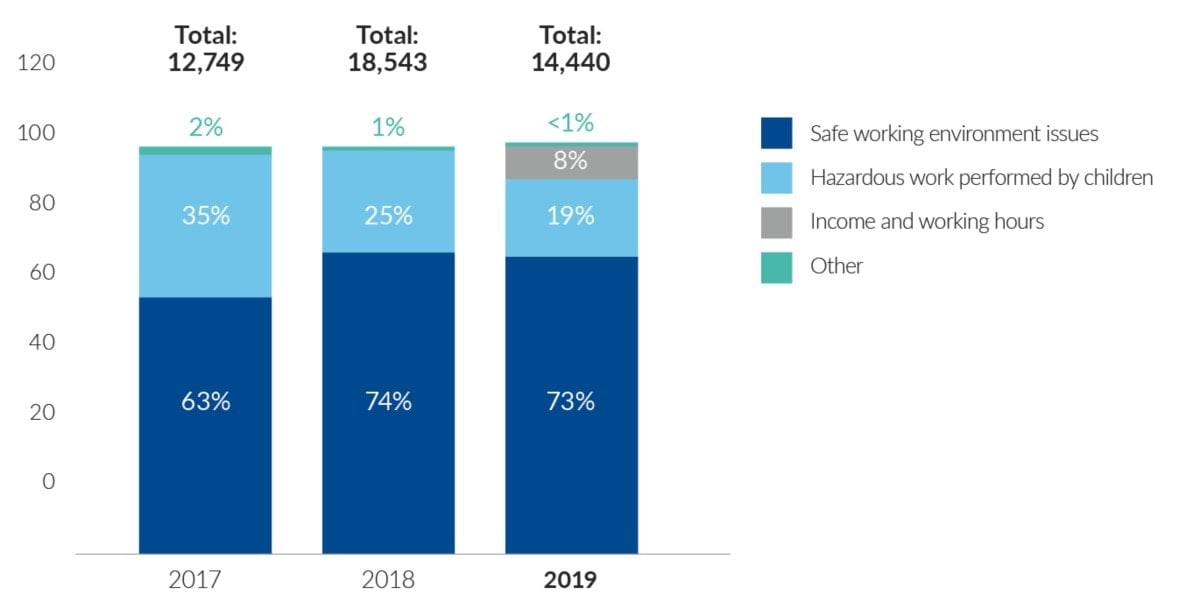
Key countries | Main 2019 interventions in ALP priority areas |
Argentina |
|
| Indonesia |
|
| Malawi |
|
| Mexico |
|
| Mozambique |
|
| Pakistan |
|
| South Africa |
|
| Turkey |
|
Note: Where step-change priority areas are not detailed, it is because they are not an issue in that market.
Child labor
In 2019, out of the 94 percent of farms monitored by field technicians on this topic, less than 1 percent were found with child labor incidents (children performing hazardous tasks). A total of 2,712 prompt actions were recorded by field technicians relating to hazardous work performed by 5,820 children, with 94 percent of these being the farmer’s own children. This is lower than the 4,587 prompt actions recorded in 2018. The 2019 decrease is primarily driven by a reduction in prompt actions in Malawi and Turkey, and PMI no longer sourcing from Tanzania. Out of the 2,712 prompt actions recorded in 2019, 88 percent were resolved. The most common hazardous tasks that children were found doing were harvesting or handling green tobacco (50 percent), followed by stringing (26 percent) and carrying heavy loads (9 percent).
While this progress is encouraging, we must maintain a relentless focus on strengthening the reliability of our monitoring data, as well as on the remediation steps to support farmers and workers to address child labor incidents in a sustainable way. We remain cautious, and we acknowledge the limitations of our monitoring system. For example, field technicians are only present on the farms for a limited amount of time during the growing season, and the issues we face are systemic, complex, and often persistent. Consequently, in 2019, we continued to work on standardizing our monitoring process and strengthening it with better guidelines and training.
We are also expanding and deepening the external assessments beyond the ongoing Control Union assessments. We have partnered with local and international organizations to verify the status of our four ALP priority areas and the effectiveness of our programs. We began these additional external verifications in Mexico and Argentina; in 2019, we added Turkey, Malawi, Mozambique, South Africa, and Indonesia. We are awaiting final results for external verification undertaken in 2019; but the preliminary results have indicated significant discrepancies compared to internal monitoring in some markets (for example, Turkey), while in others there is a reasonably good alignment (for example, Indonesia). In the markets where we are finding major discrepancies, we are working hard to understand the root causes of this and to develop and implement action plans to strengthen our internal monitoring, and, over time, see a closer alignment of the data. We will be using this additional layer of control to verify and report on our progress toward our targets, and look forward to providing an update in our future reporting.
In 2019, part of our work to prevent child labor focused on strengthening the support provided to farmers and workers, to remedy any cases found. Such support included awareness-raising and training; efforts to strengthen school access and attendance through provision of school materials and scholarships, school feeding, after-school activities, and improving schooling infrastructure; vocational training for older children; and other initiatives to improve household income levels such as women’s self-help groups, village savings and loans associations, and crop diversification. In Argentina, for instance, we partnered with a specialist NGO to undertake case-by-case remediation of child labor (see box below).
Our work on the root causes of child labor intersects with women’s empowerment. Consequently, we included women’s empowerment as one of our guiding principles on ALP Step Change published in 2019. Efforts to tackle child labor are more effective when women play a more active role. While women are positive agents of change, they are also a vulnerable group in many rural environments. In our work to empower women, we are beginning to see results, which we will report on more extensively in the future.
In Malawi, for example, we have provided seed funding, entrepreneurial training, and links to microfinancing to 257 women’s entrepreneurial groups, involving approximately 4,300 women, primarily farmers and farmers’ wives. In Turkey, we delivered training to over 1,100 women. And in Pakistan, we recruited a female team to strengthen monitoring and to improve engagement with female farmers and family members and to raise awareness about access to water, sanitation, and hygiene. We also distributed 1,500 hygiene kits to women in these communities.
Efforts to tackle child labor are more effective when women play a more active role.
Types of prompt actions recorded in 2019 relating to hazardous work performed by children
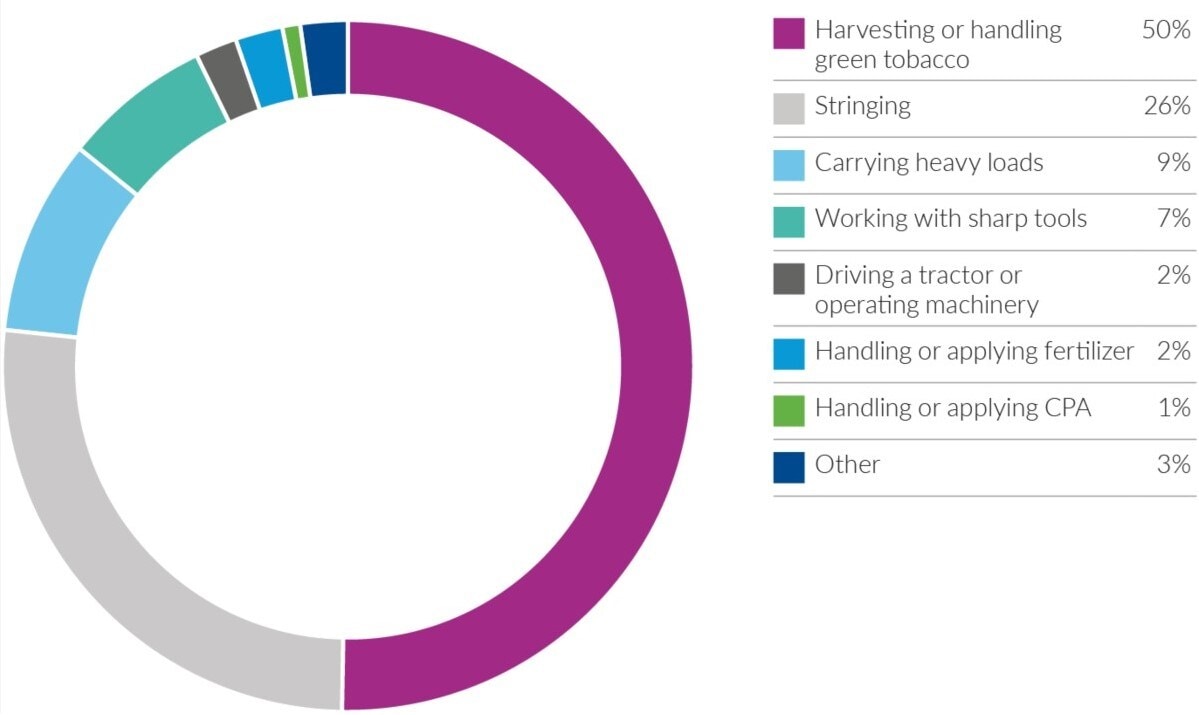
Monitoring and remediation in practice in Argentina
PMI’s Argentina affiliate, Massalín Particulares (MP), was the first company to implement our new approach to external verification and to undertake case-by-case remediation of child labor incidents with a specialized NGO. Of the 32 prompt actions raised by field technicians during their visits to more than 4,600 contracted farms in 2019, 85 percent concerned children aged between 13 and 18. Working with Conciencia, an NGO and expert in child-labor elimination, we analyzed the root cause of each case, made a plan with the farmer, and followed up regularly. The remediation worked well, and many lessons were learned. Of the 32 cases, 23 were fully resolved and no recurrence was observed as a result of the action plans implemented. Five families are still receiving support, while four families showed a lack of willingness to change despite the support provided, and consequently their contracts were not renewed.
Typical root causes were low awareness of child-labor legislation, inadequate access to schools, and the entrenched belief that some hazardous work by children around the farm is acceptable. Action plans include training, scholarships and school kits (bags and books, for instance), enrollment support, and sports equipment. MP has begun working with Conciencia to identify high risks of child labor on contracted farms and to provide the necessary support to prevent them from becoming actual cases of child labor. Furthermore, the case-by-case remediation has been expanded to our supplier Cooperativa Tabacalera de Misiones.
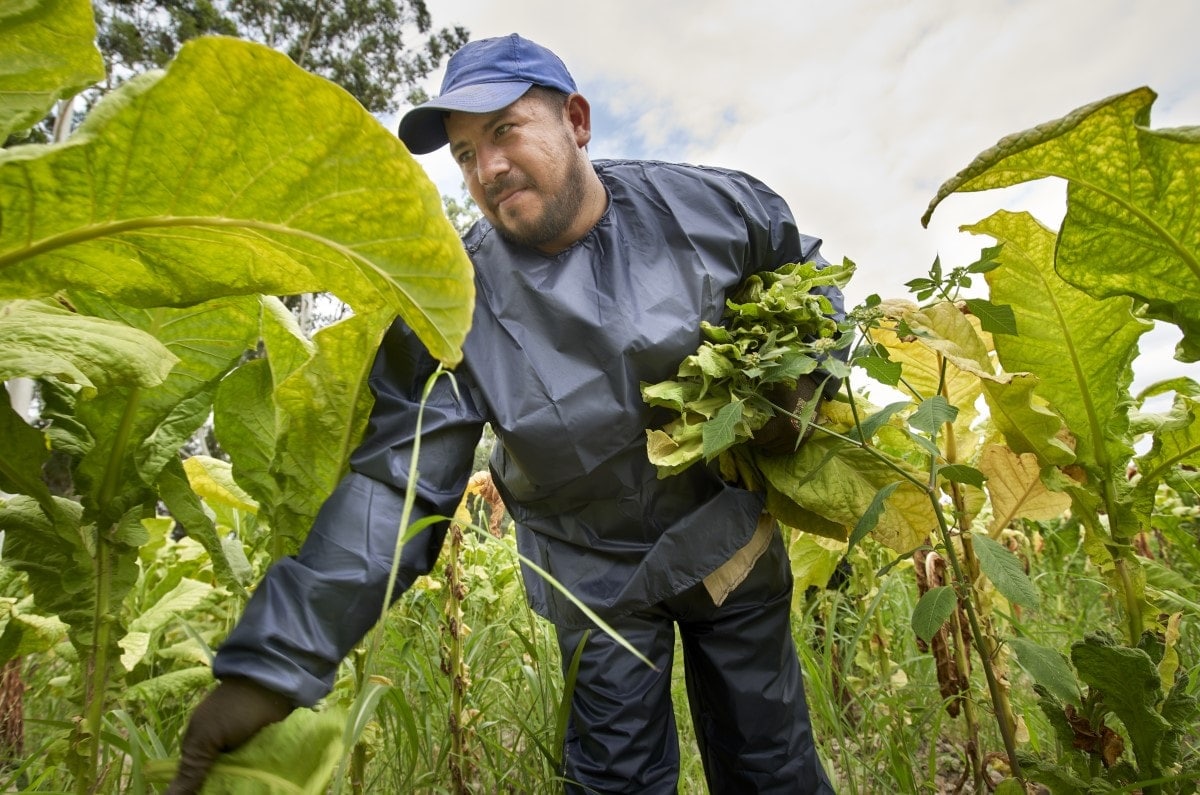
Our approach to social contributions
In 2019, we revised our social contributions policy approach to make it more decentralized, providing greater flexibility and autonomy for affiliates to decide on the community projects that will best meet local needs. As part of our policy changes we also introduced a distinction between charitable donations and community investments.
Charitable donations are not linked to impacts along our value chain and are made to enhance the overall quality of life in the communities where we operate. They are locally managed by our affiliates to address local priorities and include disaster relief efforts. In 2019, we made charitable donations valued at around USD 15 million, supporting 145 projects carried out with 128 partners across 39 countries. Our disaster relief efforts amounted to USD 1.2 million.
Community investments help manage social and environmental impacts associated with our value chain. In 2019, we ran 25 projects with 22 partners over 17 countries, directly reaching over 89,000 beneficiaries. In our tobacco supply chain, community investments can complement our ALP program by sustainably investing in community projects – such as schooling assistance for the children of tobacco farmers and farmworkers, after-school activities, and training for women and broader community members – which help address issues requiring a wider and more collaborative approach. We provide further details on our approach to social contributions, and our 2019 activities here.
Safe working environment
In line with PMI’s ALP Code, we require farmers to provide a safe workplace to prevent accidents and injury and minimize health risks. In 2019, field technicians recorded a total of 10,519 prompt actions relating to unsafe working environments (2018: 13,780). Around 42 percent of these related to unsafe or insufficient accommodation for farm workers, followed by 38 percent relating to handling green tobacco and applying CPA without the proper PPE (21 percent and 17 percent, respectively).
In 2019, we continued our monitoring and reporting of prompt actions to evaluate the availability of required PPE and ensure farmers and workers had the necessary PPE. Together with our suppliers, we distributed a total of 1,632,031 PPE sets (for CPA application and GTS prevention), including 686,000 full sets of PPE for CPA and 945,000 pairs of GTS gloves in markets where needs were identified. In other markets, we continued to provide PPE as a standard business practice. Overall, we estimate that 99 percent of farmers (and their workers) had access to the required PPE in 2019, and we are progressing toward our target of 100 percent PPE availability by the end of 2020. In parallel, we are working to ensure farmers and their workers understand the importance of using the necessary PPE. To this end, in 2019, 89 percent of contracted farmers received safety training (CPA and GTS focus).
Types of prompt actions recorded in 2019 relating to safe working environment issues
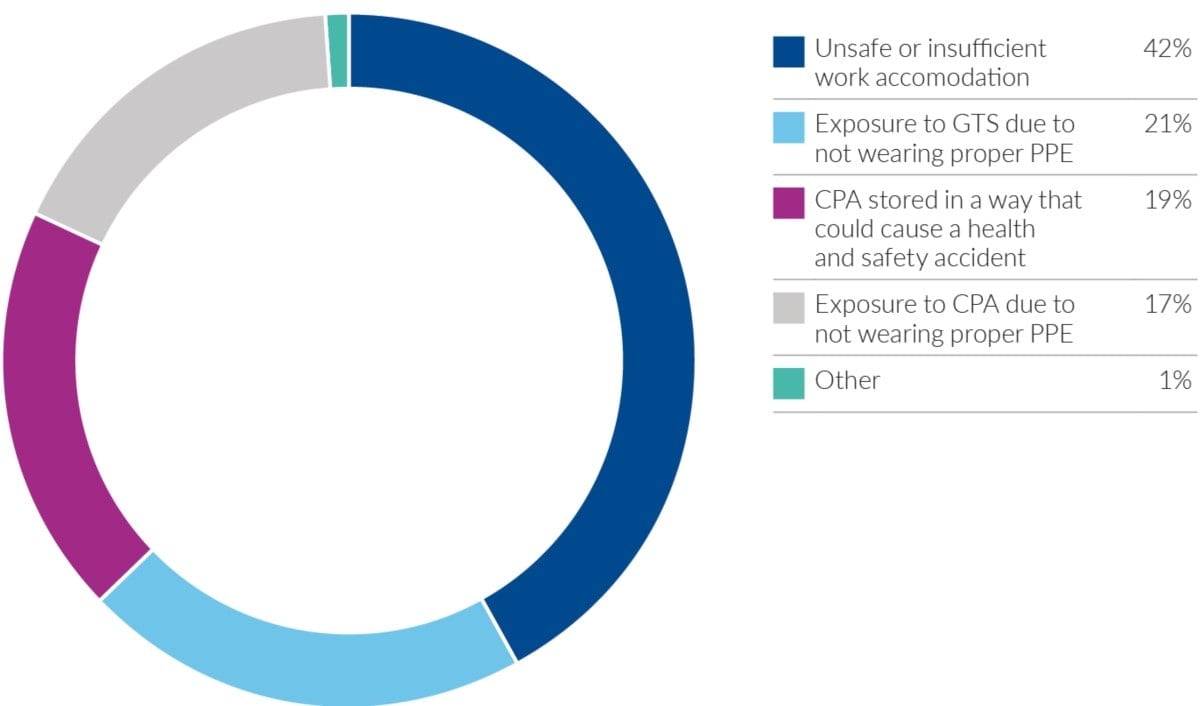
Adequate accommodation for farmworkers
In line with the ALP Code, when a farmer provides workers with accommodation, we require it to be clean, safe, and meet basic standards. Accommodation standards were developed in line with local legislations, with guidance from Verité and other local partners. In 2019, 6 percent of the total farmer base provided accomodation to their workers, and we recorded a total of 4,374 prompt actions relating to accommodation. We continued to support farmers to address these issues. We specifically helped farmers address accommodation issues in the countries where standards were not yet met: Argentina, Malawi, Mexico, Mozambique, and South Africa.
While improvements take time, we estimate that, of the farmers providing workers with accomodation, 80 percent of them were meeting the standards, and we are on track to achieve our target for all accommodation to meet the standards by the end of 2020.
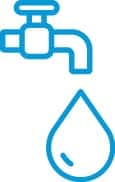
New boreholes have directly benefited more than 3,500 tobacco farmers and their families
Access to water, sanitation, and hygiene in Malawi and Mozambique
Access to water, sanitation, and hygiene (WASH) is a fundamental human right that helps ensure healthy, prosperous communities. Malawi and Mozambique, in particular, lack the infrastructure and funding needed to provide adequate WASH services to their entire populations. The link between poverty and access to water, sanitation, and hygiene is well proven, and addressing these issues leads to improved livelihoods and increased productivity.
PMI is committed to helping ensure that 100 percent of contracted farmers supplying tobacco to PMI have access to water by 2025 and access to basic sanitation and hygiene by 2030.
In 2019, with the support of our leaf suppliers, PMI made headway on these goals by drilling 13 solar-pump boreholes and 30 hand-pump boreholes in central Malawi and 60 hand-pump boreholes in Tete Province, Mozambique. These boreholes have directly benefited more than 3,500 tobacco farmers and their families and are also estimated to benefit 80,000 community members.
The response from communities that benefit from these services has been inspiring. The impact of improved, readily available water is transformational. The economic benefits of improved sanitation can include increased productivity, reduced healthcare costs, and the prevention of illness, disability, and early death. People who have access to clean, safe, and convenient sanitation services also experience greater dignity, privacy, and security. This is especially important for women and girls, who may miss work or school when they are menstruating and do not have access to safe sanitation facilities. It also reduces the risk of sexual assault by minimizing the walking distance to water sources.
The positive impact of PMI WASH initiatives is already significant and inspires us as we continue working to reach our 2025 and 2030 goals. In 2020, PMI will perform a WASH baseline study to better understand the current situation in our tobacco supply chain and better measure the impact of future interventions. Additionally, PMI is developing a plan to provide communities with the most sustainable basic sanitation and hygiene facilities.
Minimum wages for workers
Income earned during a pay period, or growing season, should be enough to meet workers’ basic needs. Our ALP Code requires that the wages of all workers (including those of temporary, piece-rate, seasonal, and migrant workers) meet – at a minimum – national legal standards or formalized agricultural benchmark standards. In a typical crop year, less than a third of contracted farmers supplying to PMI or PMI’s suppliers (or over 100,000 farmers) hire workers throughout the season.
In 2019, we expanded our monitoring of minimum wages to cover 90 percent of contracted farmers in our tobacco supply chain, compared to 82 percent the previous year, and we introduced prompt actions for the non-payment of the minimum wage, as well as external verification to validate the payments. We also conducted a number of minimum wage studies in certain countries to better understand payment schemes to workers. A total of 1,158 prompt actions were recorded by field technicians relating to farmers paying less than the minimum wage to their workers. The challenges are most commonly found in Malawi, Mozambique, the Philippines, Indonesia, Pakistan, India, and the Misiones province in Argentina. In addition to payment amounts, terms of employment may be informal or inconsistent and pay may be agreed unfairly.
Improved visibility on workers’ wages enabled us to take a number of steps to tackle the issue in relevant countries and ensure farmers pay the required minimum wage. To this end, we reiterated our expectations from farmers on this matter, in line with local laws. We also equipped farmers and workers with tools – such as time-recording templates and payment records – to keep track of working time and calculate payments in line with the minimum wage. In countries where the payment gap is significant, we provided financial literacy training to farmers and supported them to improve their farm productivity and efficiency, and their overall income levels in order for them to be able to pay the minimum wage to their workers. A key component of our work to achieve payment of minimum wages and to ensure farmers are managing their costs responsibly is to support them in their hiring practices, so that they only hire workers when necessary and depending on their land size. In Mozambique, for example, we have clearly communicated the expectation for farmers to pay their workers appropriately and guided them in their hiring practices – this resulted in a 60 percent reduction in full-time workers hired by farmers with a farm size of 0.67 hectares or below.
Clearly, there are challenges to formalizing minimum wages in many communities. In India, for instance, where a national minimum wage is a challenging issue, our third-party assessment showed several farmers were paying below the minimum wage and that women workers often were paid less than men for the same type of work, a clear violation of the ALP Code. This issue is common in Indian agriculture: Farmers and workers agree on a fee in advance of the season that is in line with prevailing rates in the communities and often lower than the legal minimum wage. In 2019, we analyzed payment practices and devised action plans for delivery in 2020. Given the vulnerability of women in the rural economy, we also developed projects on capacity building and financial training, as well as self-help groups that work with existing governmental programs and microbusiness initiatives.
Next steps
A key focus for 2020 will be to establish living income benchmarks and undertake income assessments to ascertain the income gap, validating our internal analysis with independent third-party studies following proven methodologies. In parallel, we will continue projects to alleviate poverty, and we aim to refine how we measure our impact. Our household welfare surveys will also continue in 2020 to help us measure, on an annual basis, the impacts of our projects on household income, poverty indices, food security, and nutritional diversity. Practical interventions will continue in 2020; these will include low-cost irrigation expansion, access to affordable mechanization services, and the development of agreements between farmers and offtake partners.
We will continue to strengthen our monitoring of the implementation of our ALP program, and improve the effectiveness and consistency of how we respond to identified issues. We will analyze the impact of our initiatives using indicators developed with our expert partner Verité. This will allow us to further refine our work on child labor, safe working environments, and minimum wages. We will use the results of the external verification undertaken in 2019 to improve the effectiveness of our overall program.
This online supplement to our integrated report should be read in conjunction with PMI’s Integrated Report 2019. The information and data presented in this online supplement cover the 2019 calendar year or reflect status at December 31, 2019, worldwide, unless otherwise indicated. Where not specified, data come from PMI estimates. See About this online supplement for more information. Aspirational targets and goals do not constitute financial projections, and achievement of future results is subject to risks, uncertainties and inaccurate assumptions, as outlined in our forward-looking and cautionary statements.


